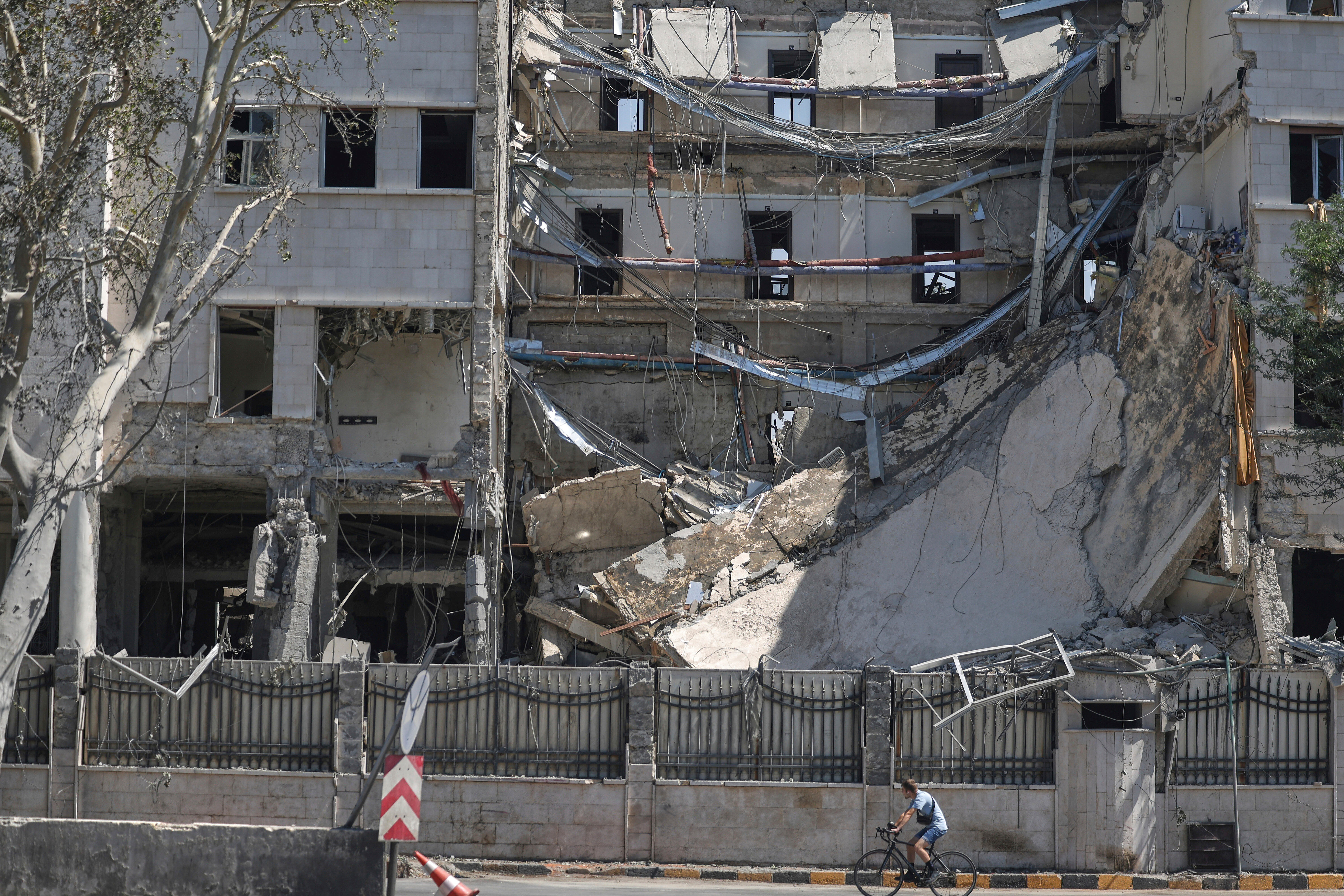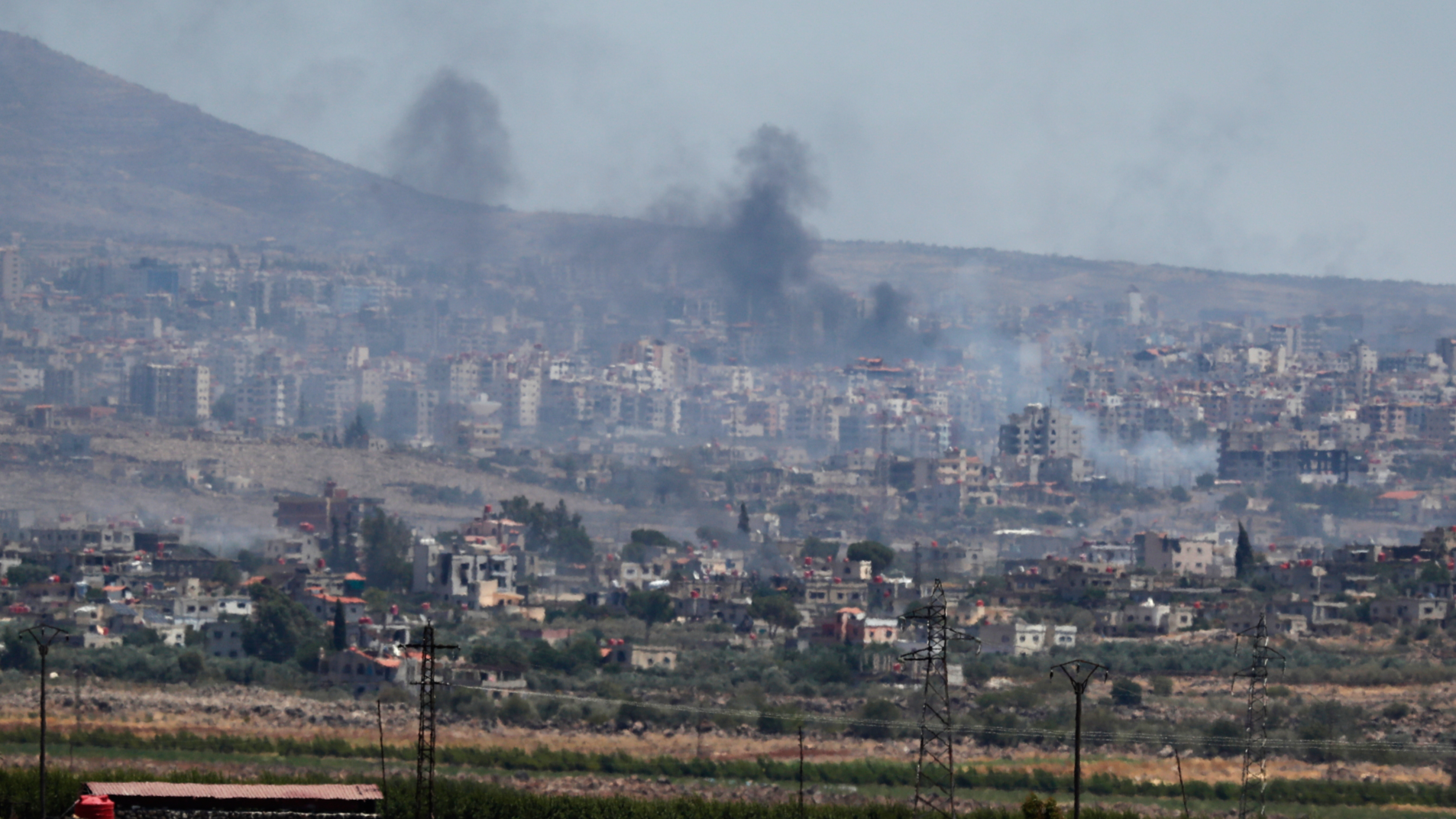
DAMASCUS/ANKARA/BEIRUT - Syrian interim government troops completed their pullout from the southern province of Sweida at dawn on Thursday, marking a temporary calm after days of heavy fighting between government forces, Druze fighters, and Bedouin tribes, the Syrian Observatory for Human Rights (SOHR) said.
"There is no longer a single fighter from government forces in Sweida," said Rami Abdulrahman, director of the Britain-based monitor, adding it remains unclear whether internal security units, which were deployed to the province before the escalation, will return.
Meanwhile, the province is facing an imminent humanitarian crisis as dead bodies remain strewn in conflict-torn neighborhoods, and the wounded lack basic medical assistance.
The escalation in Sweida began Sunday after armed members of a Bedouin tribe in the countryside of Sweida, a predominantly Druze province, reportedly assaulted and robbed a young Druze man near the town of al-Masmiyah, along the Damascus-Sweida highway. The brutal attack sparked retaliatory kidnappings, spiraling into full-scale clashes between local Druze fighters, government troops, and Bedouin militias.
On Wednesday, Israel carried out several waves of strikes on Damascus and Sweida, claiming to prevent the Druze minority from being harmed. The attacks have met with immediate strong condemnation from the international community.
Hours after the Israeli airstrikes on Wednesday, a fragile ceasefire between Syria's interim government and Druze spiritual leaders entered into effect, which includes a complete cessation of hostilities, the return of army units to their barracks, and the full reintegration of Sweida into state control.
Still, it is too early to tell whether the ceasefire will hold, or whether humanitarian and political recovery can take root in the war-scarred province.
ALSO READ: Syrian leader slams Israeli attack, vows national unity
Sheikh Youssef Jarbouh, top spiritual leader of Syria's Druze community, confirmed the terms of the ceasefire and urged all sides to honor the accord. However, in a sign of continued division, influential Druze cleric Sheikh Hikmat al-Hijri issued a separate statement rejecting any agreement with the transitional government, vowing to continue what he called "legitimate resistance" until Sweida is fully "cleansed" of armed government forces.
Amid the lingering split, Syrian interim leader Ahmed al-Sharaa reaffirmed at dawn on Thursday the government's commitment to protecting all Syrians, especially the Druze community, and strongly condemned the Israeli airstrikes.
Addressing Syria's Druze community, al-Sharaa reaffirmed its place as an integral part of the nation.
"Protecting your rights and freedoms is a top priority," he said. "We reject any effort to drag you into foreign agendas or sow internal division."
Turning to Israel, al-Sharaa accused the "Israeli entity" of consistently targeting Syrian stability and seeking to incite internal conflict since the fall of the former Syrian government. He charged that Israel aims to turn Syria into a permanent battlefield, weaken its national cohesion, and obstruct its reconstruction process.
"Syria is not a testing ground for foreign conspiracies, and we won't allow external ambitions to be realized at the expense of our children and our future," he added.

Death toll near 600
The death toll from this week's deadly clashes in southern Syria's Sweida province has risen to nearly 600, as tensions continued Thursday amid an Israeli airstrike on the outskirts of the provincial capital of Sweida, state-run media and a war monitor reported.
According to Syria's official news agency SANA, an Israeli warplane launched a new air raid targeting the vicinity of Sweida city, a day after Israeli strikes hit military and symbolic state sites in Damascus. No immediate casualties were reported from Thursday's strike.
The escalation comes as the Syrian Observatory for Human Rights said at least 597 people had been killed since July 13, when fighting erupted between local Druze armed groups and Syrian government forces, sparking what the watchdog described as one of the deadliest episodes of intra-Syrian conflict in years.
Erdogan criticizes Israel's actions
Also on Thursday, Turkish President Recep Tayyip Erdogan on Thursday criticized Israel's recent military actions in Syria, saying that Türkiye would not allow any attempt to divide the neighboring country.
Erdogan made the remarks as he met the press following a cabinet meeting in Ankara, reaffirming Türkiye's longstanding position against the partition of Syria.
At this point, the "biggest problem in the region was Israel's aggression," Erdogan said, accusing Israel of exploiting recent clashes involving Druze groups in southern Syria to expand what he called its "banditry" into Syrian territory over the past two days.
Meanwhile, foreign ministers of Jordan, the United Arab Emirates (UAE), Bahrain, Saudi Arabia, Türkiye, Iraq, Oman, Qatar, Kuwait, Lebanon, and Egypt reaffirmed on Thursday their support for Syria's security, unity, stability, and sovereignty.
Humanitarian crisis
The United Nations refugee agency and the Norwegian Refugee Council (NRC) have raised alarm over the deteriorating humanitarian situation in Syria's southern Sweida province following days of intense violence and Israeli airstrikes, warning that the fragile ceasefire may not be enough to stabilize the region.
The UNHCR said that the situation in Sweida deteriorated rapidly after violence erupted on Sunday involving local armed groups and tribal fighters. Armed clashes, shelling, and attacks on civilian infrastructure -- including hospitals and humanitarian facilities -- forced over 25,000 people to flee, with displacement estimates possibly rising to 60,000.


